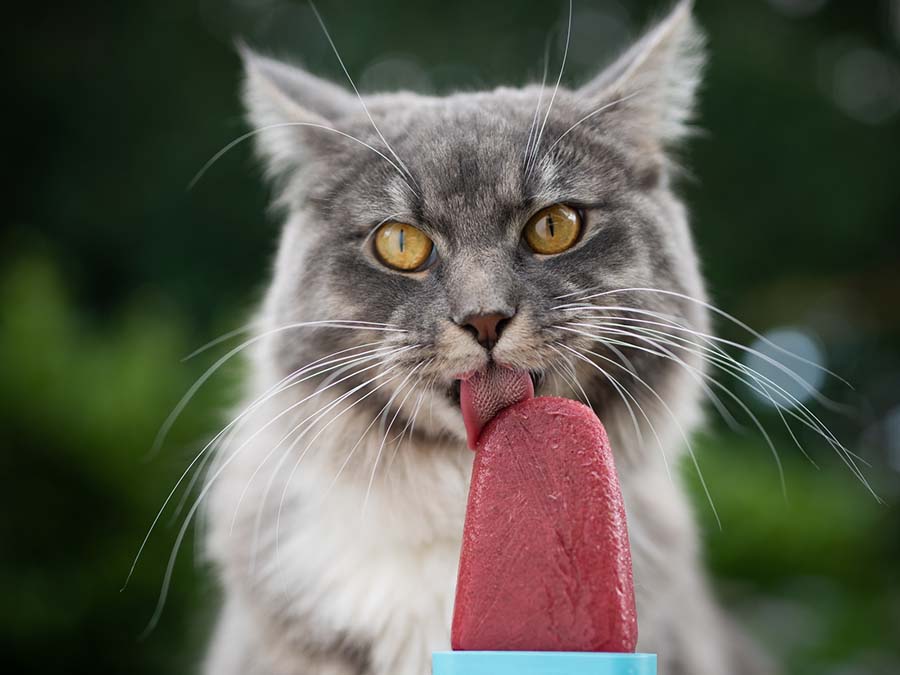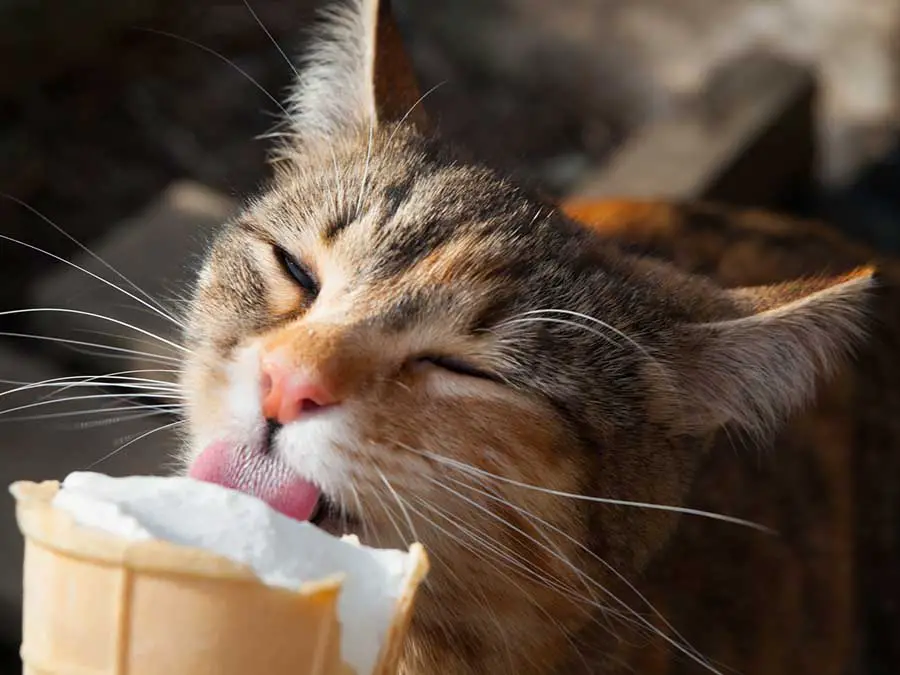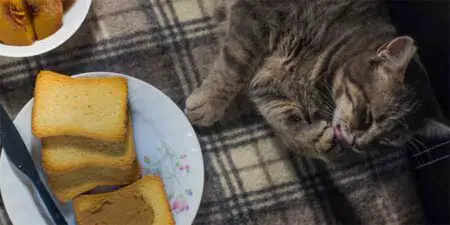Is it safe for our beloved cats to indulge in a sweet treat like ice cream? While the idea of sharing a scoop with your furry pal may seem endearing, it’s important to understand the effects of ice cream on a cat’s health.
Effects of Dairy and Sugar on Cats
First and foremost, cats are obligate carnivores, meaning their diet predominantly consists of meat. As a result, their digestive systems aren’t well-equipped to handle the lactose found in dairy products like ice cream. In fact, many cats are lactose intolerant, which can lead to upset stomachs, diarrhea, and vomiting if they consume even small amounts of dairy.
Moreover, the high sugar content in ice cream is not suitable for cats. Excessive sugar consumption can lead to obesity and other health issues like diabetes. Furthermore, certain ice cream flavors may contain harmful ingredients like chocolate, coffee, and nuts, which can be toxic to cats.
Alternatives

So, what alternatives can you offer your cat when they’re craving a cold treat? One option is to provide a small serving of lactose-free milk or yogurt. These products are specially formulated to exclude lactose, making them easier for your cat to digest. However, keep in mind that these treats should be given in moderation due to their sugar content.
Another healthier option is to make homemade cat-friendly frozen treats. You can blend small amounts of plain cooked chicken or fish with a bit of water and freeze the mixture in ice cube trays. This will provide your cat with a nutritious, cold treat that’s both safe and satisfying.
Keep your cat’s overall health in mind when offering treats. Always consult your veterinarian before introducing new foods into their diet, especially if your cat has existing health conditions or dietary restrictions. Regular check-ups and discussions with your vet will help ensure your cat stays healthy and happy.
Offering your cat a well-balanced diet, plenty of exercise, and appropriate treats is key to their long-term health and well-being.
Conclusion
So, while it might be disappointing to learn that ice cream is not a suitable treat for cats, there are plenty of alternative options available to satisfy their cravings in a safe, healthy manner.
It’s always better to prioritize your cat’s well-being, even if it means saying no to those pleading eyes asking for a bite of your ice cream.
What Really Happens When Cats Drink Milk? (Video)
Related Questions
Can cats digest ice cream?
While humans can enjoy ice cream without any problem, our feline friends might face some difficulties. The main reason is that many cats are lactose intolerant, which means they lack the enzyme lactase that is needed to break down lactose in dairy products like ice cream. As a result, consuming ice cream can lead to gastrointestinal issues such as diarrhea, vomiting, and stomach pain.
Are the ingredients in ice cream safe for cats?
Along with the lactose issue, some ingredients in ice cream can be harmful or even toxic to cats. For instance, chocolate – a popular ice cream flavor – contains theobromine, which can be lethal for cats. Artificial sweeteners, especially xylitol, are also dangerous and can lead to severe health issues, including hypoglycemia and liver failure. Therefore, always check the ingredients of the ice cream before considering sharing it with your cat.
Can cats enjoy a small amount of ice cream?
Although it’s best to avoid giving ice cream to your cat, a tiny lick or two of plain, low-lactose ice cream might not cause severe issues in some cases. However, always monitor your cat’s reaction afterward, and if you notice any signs of distress or discomfort, it’s vital to avoid ice cream in the future.
What alternatives can be provided to cats instead of ice cream?
Instead of sharing your ice cream, consider offering your cat a healthier and safer treat. You can find specially formulated cat ice treats or frozen cat food in pet stores, which are made with ingredients that are more suitable for your cat’s dietary needs. Moreover, you can try freezing some low-sodium chicken broth in an ice cube tray, providing a refreshing and cat-friendly substitute for ice cream.
Can ice cream consumption lead to obesity in cats?
Yes, ice cream’s high sugar and fat content can contribute to obesity if consumed regularly. Obesity is a growing concern among pets, leading to various health complications, including diabetes, heart disease, and joint problems.
"In ancient times cats were worshipped as gods; they have not forgotten this."
-- Terry Pratchett





